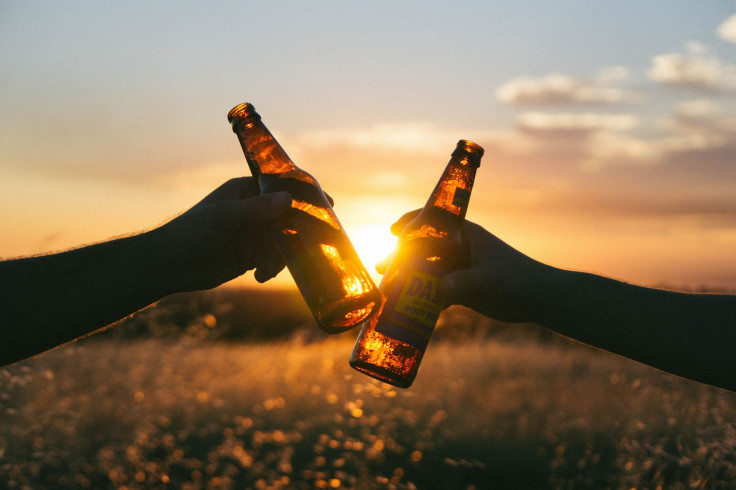Worried Of Hangovers? Try These Tips To Avoid The Unpleasant Symptoms
KEY POINTS
- Alcohol is metabolized by an enzyme called alcohol dehydrogenase
- This enzyme breaks down ethanol into acetaldehyde - a poison and a carcinogen
- Alcohol affects the cortex, cerebellum and medulla in the brain
Christmas is approaching fast and many of us would be looking to celebrate it with a drink or two. Worried the hangover would hamper your mood the next day? Here's a breakdown of what causes a hangover and how to survive it.
"Alcohol is a 'dirty drug,'" said Emily Palmer, an Imperial College London researcher who studies hangovers, reported The Guardian. "It impacts multiple systems in the brain." Alcohol affects the cortex, cerebellum and medulla.
"The brain just shuts down," added Rayyan Zafar, a neuropsychopharmacologist at Imperial College London and researcher for the charity Drug Science. "That's why people call alcohol a depressant; not because it makes you feel depressed, but because it depresses the whole central nervous system."
Alcohol is metabolized by an enzyme called alcohol dehydrogenase (ADH). This enzyme breaks down ethanol into acetaldehyde – a poison and a carcinogen, according to the outlet.
"Ultimately, alcohol is a toxin that, no matter how it's made or what it's paired with, will always impact sleep quality, cause dehydration, blood sugar issues, inflammation of the lining of the gastrointestinal (GI) tract, and congestion in the liver due to a build-up of toxic products," nutritionist Hannah Norris, from health platform Omnos, explained.
"However, there are steps you can take to limit the hangover, such as a boost of important vitamins and nutrients and proper rehydration," Norris added.
So, how do we enjoy the holiday season hangover-free?
Alcohol is a diuretic, that is, it causes the person to urinate more. This causes dehydration.
"We think hydration is super-important," Zafar suggested. "And by hydration, we don't just mean water. We also mean sodium, chloride and potassium."
Another tip is to dilute your drinks so that the body has time to metabolize alcohol, which, in turn, will slow down the build-up of toxic by-products.
The type of alcoholic drink can also have an effect on the intensity of the hangover. Dark-colored drinks such as red wine or whisky should be avoided as they have more congeners than clear drinks like vodka or gin.
Congeners are compounds with toxic effects. They include acetone, acetaldehyde, fusel oil, tannins and furfural. Studies show that drinks containing more congeners can lead to a worse hangover.
The fourth tip includes eggs! Yes, eggs contain the amino acid cysteine, which is said to slow the metabolism of alcohol, Zafar said.
Unfortunately, there is no silver bullet to cure hangovers. Researchers from King's College London analyzed some purported hangover cures such as clove extract, red ginseng, and Korean pear juice, and found no significant evidence to prove they were effective.
There is also a genetic factor involved in the hangover dynamics. People who make ADH quickly are better placed to handle hangovers than those who don't.
"Those who are able to rapidly regulate this enzyme and break down alcohol ... probably don't have hangovers," Zafar said. "But they are more likely to develop alcohol addiction because they can drink more without the negative effects."

© Copyright IBTimes 2024. All rights reserved.





















